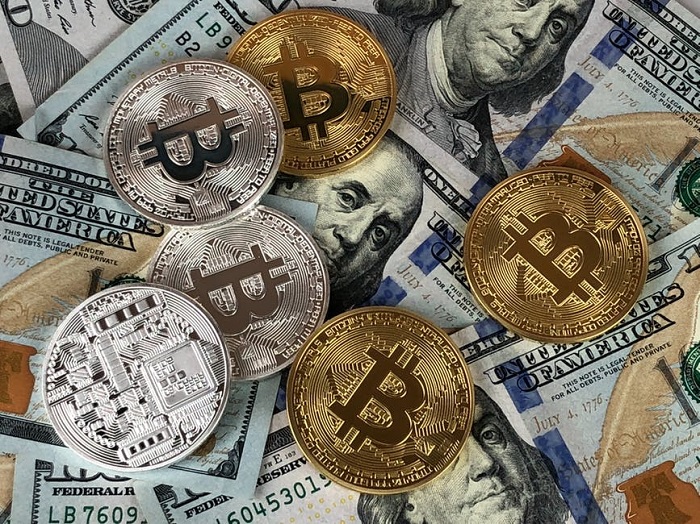How Dark Web Crime Happens?
The Dark Web is that part of the internet which is hidden from search engines and normal web browsers. Using powerful encryption techniques and the best "hacker" talent out there, websites that exist on the Dark Web are the perfect haven for those who don't want their identities known.
While anonymity is precious for many reasons, it's also sadly prized by people who want to break the law without getting caught. The end result is that a significant percentage of Dark Web resources are geared towards committing and supporting crime. While that's hardly the raison d'être of the Dark Web, it's a major component of it. So we have to ask ourselves how exactly crime happens in this hidden digital world. To answer that question, we'll start with how the nature of the Dark Web makes it all possible.
Hide and Seek
What does it mean for the Dark Web to be "hidden"? It's not just that it's hidden from search engines. The Deep Web as a whole is hidden from search engines mainly thanks to how internet technology is designed. When you log into Gmail, you are accessing the Deep Web. Thankfully search engines don't index the contents of your emails!
The Dark Web, on the other hand, was created specifically to hide the identities and activities for users. While there are various technologies to do this, almost all of the Dark Web exists on the Tor Hidden Services network.
Tor or The Onion Router is a complex technology that layers data packets in multiple passes of encryption. Those onion-layered packets are then sent down randomized routes through a network of volunteer nodes. At each destination, one layer of encryption is stripped away and the packet is sent along. At the last node, the last layer is gone and the server receives the information. This design makes it virtually impossible to trace users back from their contact with a website or other client. This technology was actually developed by the US military so that they could contact agents in places where open internet access was not allowed. It's the most powerful, generally available encrypted network in the world.
Coins for Wares
Being able to communicate anonymously is a great thing if you want to engage in criminal activity, but how do you actually make money off it?
This is a real problem since every electronic transaction is traced and logged through some sort of centralized system. This is why criminals have to smuggle cash and why most countries put a strict limit on how much cash you can have on you when you cross the border. Stuck between these two monetary issues, the criminal potential of the Dark Web is quite limited. That is, it was. Then we saw the advent of Bitcoin. A cryptocurrency that is essentially digital cash. It's completely decentralized, which means money can be converted into Bitcoin, moved electronically anywhere and then cashed out again. Now the picture was complete and the criminal element of the Dark Web could flourish unbounded.
Narcotic Notions
Whether laws banning recreational drugs are just or not is debatable, but the fact is that in most countries almost all recreational narcotics are illegal to buy and sell. If anyone wants to buy these substances, they're forced to head to a street corner in a bad part of town and hand in some cash to potentially shady characters. Darknet black markets such as the now-defunct Silk Road changed all of that. It allowed dealers and their customers to do business without ever needing to meet.
The site advertises the product and customers place orders. Payments are made using Bitcoin. The market itself provides escrow to make sure that no one gets shafted. The narcotics arrive, believe it or not, using the regular old postal service. After all, is said and done, both buyer and seller get to rate each other. It's pretty much like buying something from Amazon.
Billions of dollars change hands this way and, while they keep knocking them down, governments have been unable to kill Darknet markets as a whole. This simple need by people to alter their consciousness for fun seems to be much bigger than those running the war on drugs seems to realize!
Scammers, Spammers and the Scum of the Earth
When you are completely anonymous and can present any mask you want to the outside world, it makes taking advantage of the gullible an attractive way to make a quick buck. The Dark Web is filled with scammers and other predators who are very good at parting people from their property and money.
Of course, scams are not rare on the Clearnet either. Our email spam boxes are filled with promises from Nigerian princes and other fictional persons, offering us millions in exchange for hundreds.
The main difference is that on the Dark Web no one really knows that identity of anyone else. So the scammer may, in fact, turn to be the victim. There are also plenty of law enforcement agents who pose as all sorts of people on the Dark Web. This all plays into the central issue of trust on the Dark Web. It’s one of the reasons Darknet markets emerge, as a neutral third party that can ensure everyone is on the level.
So what sorts of scams are we talking about? They vary, but one good example is scammers that prey on people who believe in certain Dark Web myths. One such myth is that you can hire a contract killer on the Dark Web, but there has never been a confirmed case of this happening. However, there are people who will pose as a contract killer and then walk away with the deposit. Of course, it’s hard to sympathize with someone who lost their money trying to hire a hitman. Still, anyone you communicate with directly on the Dark Web is a potential scammer.
The Hacker Collective
Few groups are as strongly associated with the Dark Web than hackers. It’s not a totally unfair stereotype either. This is the place where hackers come together and exchange knowledge. There’s an amazing society of computer misfits and masters who brag, share and lurk on Dark Web hacker forums.
What is an unfair stereotype is the notion that all hackers are criminal? It’s actually much more nuanced than that. Hackers are roughly divided by moral alignment. White hat hackers work to help improve cybersecurity and stick to a strict ethical code. Black hats are unconstrained by ethics and will break laws for their purposes. Grey hat hackers aren’t malicious but aren’t above breaking some laws if they think it’s justified.
When it comes to hacker related crimes on the Dark Web, it’s mostly straightforward. Clients can hire hackers to do work for them according to their needs. If you need help beefing up your security, you might hire a white hat to test your defenses. If you want someone to break into your competitor’s system, well that’s black hat territory.
Black hat hackers don’t just sit around waiting for work to fall in their laps either. They independently target victims in order to make a buck. Mainly that involves causing data breaches and then reselling usernames, passwords, and credit card numbers to whoever has the crypto to pay for it.
Everything is For Sale
While we mentioned narcotics on its own because it’s the most popular physical item that gets traded on Darknet Markets. However, there’s a huge variety of illicit goods that are sold alongside them.
The most notorious is certainly child pornography. The Dark Web has become a haven for people who want to trade or sell illegal pornographic material. Because the technology underpinning the Dark Web is so secure, this has been a particularly hard nut to crack.
Apart from that deplorable content, you can also buy weapons. Firearms and other more esoteric items. Banned and uncensored content may also be illegal in some countries. Which technically adds it to the "Crime" category if citizens use the Dark Web to bypass censorship. Although to the rest of the world this is admirable resistance.
Dark But Not Done
The Dark Web is a mixed bag. On the one hand, it provides some of the only remaining privacy and freedom on the net. It's a crucial channel for the truth to come out. There's a lot of good that's being done on the Dark Web. The question is whether the good that it does is worth the bad. We don't have the answer to that, but given its nature, it's unlikely the Dark Web is going anywhere soon one way or another.
What are the strangest Dark Web crimes you've heard of? Do you think Dark Web crime can ever be stopped? Let us know in the comments. If you think this article is interesting, please share it with your friends. Don’t forget that you can follow us on Facebook and Twitter. Thanks for reading!






